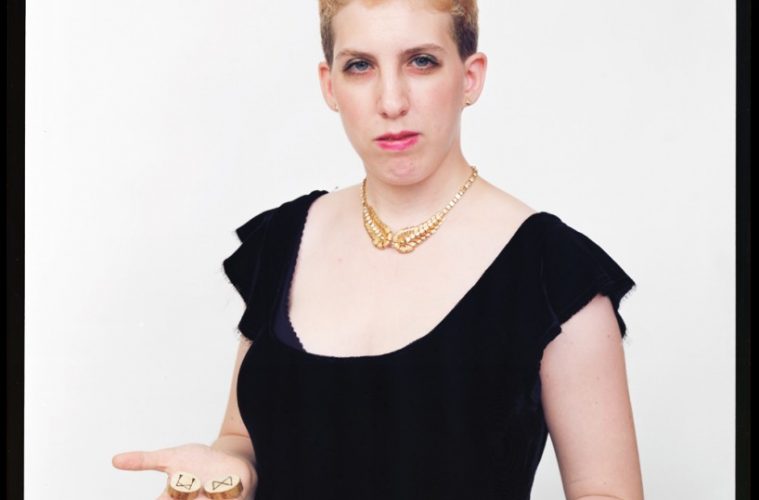Danielle Young dips her fingers in a small bowl of water and sprinkles it in a circle, cleansing the space around her. She raises a delicate wooden spoon want toward the heavens in four directions, calling on the guardians of the North, South, East, and West, as well as upon the ancestors and Mother Earth.
“Magic is about intent,” she says, clutching a white quartz crystal to her chest.
“If you do not believe, it cannot occur.”
As she intones during the ritual, Reverend Donald Lewis replies, his eyes closed.
“So mote it be,” Young says.
“So mote it be,” Lewis repeats.
Although some of the elements of this Wiccan ritual seem a bit foreign, others are not: the holy water, the prayer, the call and response. The World of Witches Museum in Salem often conducts this type of educational ritual in its small—and public— Temple of Tituba, so visitors can see what they’re like.
“They can see there are no goats,” Lewis says, only half-joking. “They can see that there’s nothing particularly scary about it…They expect it to be really weird and strange, but they find it’s really quite familiar.”
Visitors to Salem often only see the surface of the city’s Wiccan and pagan communities: the tarot readers, the magic shops, the occasional public ritual, and the often outsized personalities of witches who have been well-known public figures for years. But starting this fall, a new web-based docudrama will be lifting the curtain on Halloween. The Young Witches of Salem will follow a group of young people as they learn the ropes not only of their craft, but also of the business of being a witch in Salem.
“It’s not just learning about witchcraft—it’s focused a lot on that—but it’s also focused on learning about how to be marketable in this environment, from dance to simple stage magic to studying with a shamanic practitioner,” says the 24-year-old Young, one of the “young witches” who will be profiled on the show.
“There’s a lot of young people out there who are very interested in the subject, who are very entertained by the subject, but are getting a lot of [Buffy the Vampire Slayer] information, a lot of Charmed information,” says Ed Hubbard, the show’s executive producer. “We want to show what it’s like to be practicing. Everybody is fascinated with Salem as a witch Mecca. We want to show what it’s like to be actually in Salem, for good or for bad, [and] what it’s like behind those lines.”
Whereas Wicca is a religion, witchcraft is a set of skills. As with any discipline, these skills need to be learned and practiced, so audiences will see the young witches learning aspects of the craft from well-respected elders in the community. Even though the show will technically be unscripted, there are certain scheduled activities. For example, they’ll be learning about stage magic from magician Daniel Greenwolf, about shamanic practices from author and shaman Raven Kaldera, and about reading stones from Terry Milton. They’ll also be learning about mediumship, spirit messages, and pendulums, among other topics.
“I am not very experienced in any of the above; that’s why I am coming,” says Lexi Renee, an 18-year-old who left her home in South Carolina in August to come to Salem to participate in the show. “Being with like-minded people, getting away from the South for a while, and experiencing new things is the main goal.”
Producer Hubbard calls Renee the show’s “Dorothy.” “She’s coming to see the wizard,” he says. “And she doesn’t want to just go home; she wants to become part of the Emerald City.” Although some of Renee’s friends in South Carolina are interested in witchcraft, none of them are as passionate about it as she is. “It’s very hard to be a pagan around here. In the South, it hasn’t been as accepted as it has in the North,” she says. “You might get someone calling you a devil worshipper; you just smile and wave and walk away.”
Those involved with the show hope it will help to clear up such misconceptions. “This isn’t scary. This isn’t devil worship,” says Katrina Kessler, one of the show’s producers and the manager at the World of Witches Museum. Although Kessler is not technically one of the show’s “young witches,” the 22-year-old Swampscott resident is, in fact, a young witch herself and will appear on the show frequently.
Along with Kessler, many of the people who will appear on the show work at the World of Witches Museum, which presents information about the history of witchcraft and its modern-day practice. Kessler leads tours through the museum multiple times per day, and each tour ends the same way: “Step in front of this magic mirror and see what you’ll look like as a witch,” Kessler says, waving her arms in a grandiose flourish, and inviting tourists to get a glimpse of what they’d look like if they, too, were witches. People expect it to be a spooky mirror that casts a greenish tinge over their skin, but once they take a look, they erupt into relieved—or maybe embarrassed—laughter; it’s just an ordinary mirror hanging on the exit door.
“It gets every kid every time; and it gets about 50 percent of adults, too,” Kessler says. “We dispel a lot of negative stereotypes here.” But Kessler says the museum also helps kids talk with their parents about Wicca and paganism. “We actually have a lot of young people who have come through this museum and have quietly thanked me afterwards,” she says. They tell her, she says, “I’m pagan, and my mom doesn’t know yet, and this has been a really great eye opener for her. Thank you so much for breaking the ice.”
Over the years, it’s gotten easier for people to “come out” to their families as witches, an experience that’s dubbed “coming out of the broom closet.” But that’s not to say it’s exactly easy, even in places like Salem, where witches are celebrated all the time.
“It is very much a matter, for some people, of coming out of the closet, and often it does lead to a lot of strife” within families, says Lewis, who’s 48 years old and was actually raised as a witch—albeit very secretively—in a branch of the craft called the Correllian Nativist Tradition, founded by one of his ancestors. “I’ve known people in their 50s who were afraid to tell their parents that they’d taken up Wicca.”
Although Danielle Young was born and raised in Salem, she has not always been a witch. “My family likes to pretend that I’m still a good little Jewish girl most of the time, but they occasionally do recognize that I am of a different faith,” she says. “They’re generally neutral; not quite supportive, but not ready to throw me out of the house over it.”
Katrina Kessler still remembers the day she broke the news to her Roman Catholic parents. It was Easter morning, and she was 13 years old when she told them that she could no longer take the Eucharist.
“I felt really bad lying in front of my family and in front of the God that they believed in,” she remembers. Her parents took the news very well, but had one caveat: “They said, ‘That’s fine, we totally respect that, and you can do whatever you want…just don’t tell your grandma.’”
Like Lewis, Lexi Renee’s history with witchcraft goes back several generations; her grandmother was from a pagan family who traveled with the circus.
“In my family, the craft was a love-hate relationship. It was talked down and against in public, but in the closet, it flourished,” she says, adding that her grandmother seemed to be afraid of the craft and spoke against it to her own children. “But of course, they picked it up, and then I picked it up,” Renee says. “So it’s just something that’s been going down the line, but very hush-hush.”
Although the Harry Potter books and movies and TV shows like Charmed aren’t exactly accurate depictions of real-life witchcraft, they are positive portrayals of it and have helped make witchcraft more accepted. But perhaps the most powerful tool for young witches is the Internet, which not only provides information about witchcraft, but helps them to connect with other practitioners.
“You actually see a lot more communities online because we are an online generation,” Kessler says. “We can do rituals together because we have the Internet.”
In fact, The Young Witches of Salem, which will be broadcast online by ClickVision TV, is just the latest online venture between Lewis and Hubbard. Together, the two also operate WitchSchool.com, an online educational network that boasts thousands of students from around the world. WitchSchool.com also produces the YouTube channel Magick TV, which features interviews with prominent pagans and coverage of pagan events. And broadcasting The Young Witches of Salem online will reach a broad audience with a message that witches are just like everyone else.
“Yes, Virginia, there is a Harry Potter,” Young says. “And he happens to be your next-door neighbor.”

